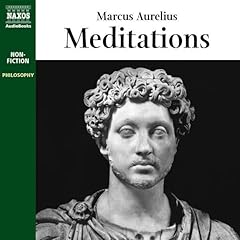
Meditations on First Philosophy
No se pudo agregar al carrito
Solo puedes tener X títulos en el carrito para realizar el pago.
Add to Cart failed.
Por favor prueba de nuevo más tarde
Error al Agregar a Lista de Deseos.
Por favor prueba de nuevo más tarde
Error al eliminar de la lista de deseos.
Por favor prueba de nuevo más tarde
Error al añadir a tu biblioteca
Por favor intenta de nuevo
Error al seguir el podcast
Intenta nuevamente
Error al dejar de seguir el podcast
Intenta nuevamente
 Exclusivo para miembros Prime: ¿Nuevo en Audible? Obtén 2 audiolibros gratis con tu prueba.
Exclusivo para miembros Prime: ¿Nuevo en Audible? Obtén 2 audiolibros gratis con tu prueba.
Elige 1 audiolibro al mes de nuestra inigualable colección.
Acceso ilimitado a nuestro catálogo de más de 150,000 audiolibros y podcasts.
Accede a ofertas y descuentos exclusivos.
Premium Plus se renueva automáticamente por $14.95 al mes después de 30 días. Cancela en cualquier momento.
Compra ahora por $12.28
-
Narrado por:
-
Adriel Brandt
-
De:
-
René Descartes
Rene Descartes, mathematician, scientist, and first "modern philosopher", wrote Meditations on First Philosophy, a six-part treatise first published in Latin in 1641, to deconstruct "belief" and, using reason and science, discuss the only things we can truly know for sure.
Each of the six parts of this book represents six of Descartes’ meditations that occurred on six subsequent days, making it also, in no small part, an autobiographical piece of work. This text, and Descartes’ metaphysical and philosophical system as a whole, is still studied today and is considered amongst the most influential philosophical work in history.
Public Domain (P)2018 Museum AudiobooksLos oyentes también disfrutaron:




















Las personas que vieron esto también vieron:




Todavía no hay opiniones


